

Tap on me to know the recent stocks price
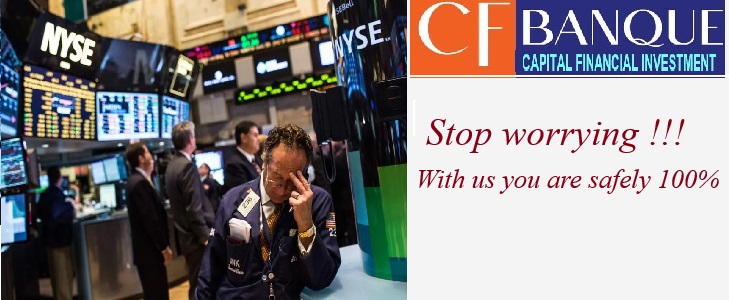
Stock investment market is little bit dangerous market specially if you are new to this market. With our team support who have the experience and information about stocks market, you can enter to these markets and buy & sell.
We recommend you to take tour from here
Stocks Exchange Market




CF Banque experts have the information from several resources, categorised , sorted, and analysed.Surely this is a great effort has been done along 5 years and required experienced human resources and technology tools. Investor time is crucial, so we supply you all what you need to exchange safely and gain profits.
We will bring you the markets, provide you the trends, directions, and analysis.
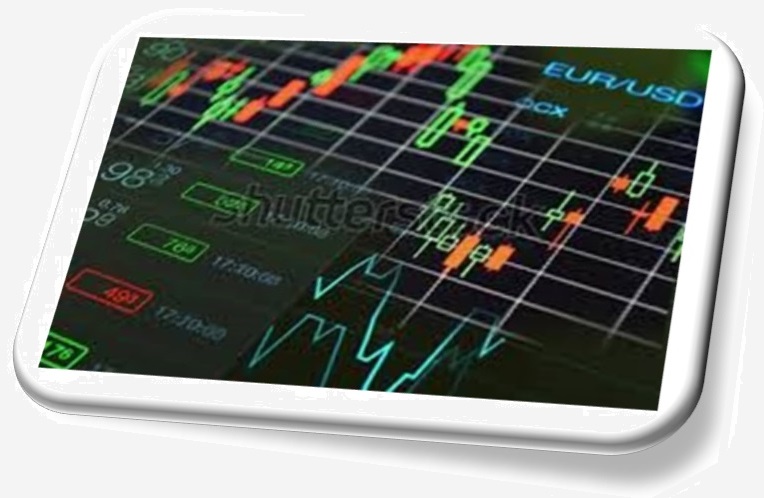
Stock trading involves buying and selling shares in publicly traded companies. In the United States, this typically occurs on stock exchanges like the New York Stock Exchange (NYSE) or the Nasdaq stock market (Dubai)
When someone buys shares of a company, they effectively become a small part-owner of that company and have some claim on its assets and earnings, in the form of dividends and/or capital appreciation. The value of the shares depends on a variety of factors, including the company’s financial performance, outlook, overall market conditions, and investor sentiment.This is a comprehensive guide to stock trading basics and the different types of stock trading, as well as tips for getting started:
1. Stock trading involves buying and selling shares of publicly traded companies on stock exchanges.
2. Types of stock traders include long-term, short-term, day trading, swing trading, and high-frequency trading, with each having a different time horizon and goal.
3. Stocks are typically categorized based on company size or market capitalization, industry, and growth vs. value opportunities.
4. Trading stocks involves risk, including the chance that you might lose up to your entire investment.
Stock trading and the people who do it come in many varieties and feature myriad strategies and approaches. Often, stock trading is categorized based on one’s desired holding period, or time horizon.
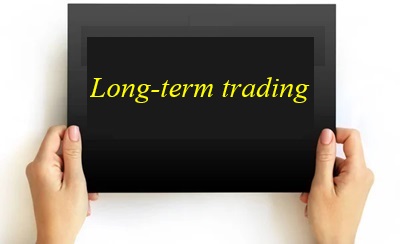
involves buying shares of a company and holding onto them for an extended period, usually several years or even decades. The goal of long-term trading is to benefit from the growth of the company over time and to earn dividends on the shares. Long-term buy-and-hold traders are often categorized more as investors but may also be called position traders.
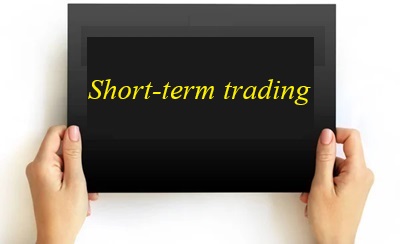
on the other hand, involves buying and selling shares over a briefer period of time—usually a few days, weeks, or months. The goal of short-term traders is to make quick profits by taking advantage of market fluctuations. Day traders have an intraday time horizon, making several trades over the course of a single day or a few days. Swing traders have a more medium-term outlook, looking to capture trends and momentum over several weeks or months.

traders may employ algorithms to help them place trades in milliseconds to “scalp,” or make a series of small but quick profits. Also known as high-frequency traders (HFTs), they use computer programs to execute trades based on preset criteria. While high-frequency trading is usually the realm of professional Wall Street traders and hedge funds, algorithmic platforms are becoming increasingly available to ordinary traders.

While most beginner traders buy stocks and later sell them, some traders also sell stocks short. They borrow shares that they don’t own and sell them, hoping to buy the borrowed shares back at a lower price later. Being “short” (betting the market will go down) is the opposite of being “long” (betting the market will go up).
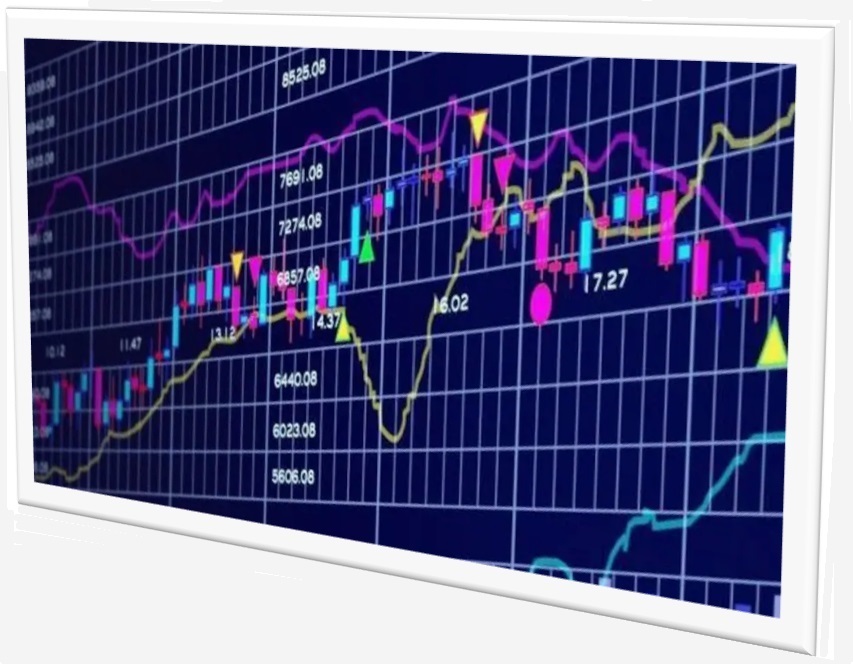
A stock exchange is where financial instruments are traded, including equities and bonds. Exchanges bring corporations and governments together with investors. Exchanges help provide liquidity in the market, where trades can be processed efficiently without delays.
Shares of stock become available on an exchange after a company conducts its initial public offering (IPO). A company sells shares to an initial set of public shareholders in an IPO known as the primary market. After the IPO floats shares into the hands of public shareholders, these shares can be sold and purchased on an exchange or the secondary market.
The exchange tracks the flow of orders for each stock and relays the stock's price. If a stock's bid price is $40, an investor is willing to buy the stock for $40. At the same time, an asking price of $41 means a trader is willing to sell the stock for $41. The difference between the two is the bid-ask spread.

The general public can trade shares on the secondary market after a company's initial public offering.
Auction exchanges, or the auction market, are where buyers and sellers put in competitive bids and offers simultaneously. In an auction exchange, the current stock price is the highest price a buyer is willing to spend on a security, and the lowest price is what the seller accepts. Trades are matched, and the order is executed.
The auction market is also referred to as the open outcry system. Brokers and traders communicate physically and verbally on the trading floor or pit to buy and sell securities. Although this system has mostly been replaced by electronic trading, some exchanges still use the auction system, including the New York Stock Exchange (NYSE).
The NYSE Closing Auction is the last event of the trading day when the closing price for each stock is determined by bringing all buyers and sellers together to establish a price for those involved.
The New York Stock Exchange is the world's largest equities exchange. The parent company of the New York Stock Exchange is the Intercontinental Exchange (ICE) as a result of the merger with the European exchange Euronext in 2007
The NYSE remains one of the world's leading auction markets, meaning specialists are physically present on its trading floors. Each specialist specializes in a particular stock, buying and selling the stock in the auction. Companies listed on the NYSE meet initial listing requirements and comply with annual maintenance requirements.
Investors who trade on the NYSE benefit from a set of minimum protections, which include a requirement that equity incentive plans must receive shareholder approval, the majority of the board of directors' members must be independent, the compensation committee must be entirely composed of independent directors, and the audit committee must include at least one person who possesses "accounting or related financial management expertise.
The Nasdaq is where buyers and sellers are only connected by computers over a network. Nasdaq is one of the world's leading electronic exchanges. Market makers, also known as dealers, carry their inventory of stock. They stand ready to buy and sell stocks on the Nasdaq and post bid and ask prices.
The exchange has listing and governance requirements similar to the NYSE. If a company does not maintain these requirements, it can be delisted to an over-the-counter (OTC) market.13
The term over-the-counter (OTC) refers to trades on markets other than large organized exchanges. OTC markets generally list small companies or those delisted from other exchanges. The Over-the-Counter Bulletin Board (OTCBB) was an electronic community of market makers with no quantitative minimums for annual sales or assets required to list. The OTC Bulletin Board was closed in November 2021.14
The term used for some OTC trading, Pink Sheets, doesn't require companies to register with the Securities and Exchange Commission (SEC). Liquidity is often minimal, and these companies are not required to submit quarterly 10Qs.1516 Some companies have deliberately switched to OTC markets to avoid the administrative burden and costly fees due to regulatory oversight laws such as the Sarbanes-Oxley Act.
Electronic communication networks (ECNs) are part of an exchange class called alternative trading systems (ATSs). Regulated by the SEC, alternative trading systems electronically match orders for buyers and sellers. An ATS is not a national securities exchange but is considered a "dark pool."
Dark pools are trading systems where users place orders without publicly displaying the size and price of their orders to other participants in the dark pool. An ATS may apply to the SEC to become a national securities exchange.
The Shanghai Stock Exchange (SSE) is the largest in mainland China. Many investments are traded on the exchange, including stocks, bonds, and mutual funds. The Shenzhen Stock Exchange (SZSE) is the second-largest stock exchange operating independently in China.
Euronext is Europe's largest stock exchange, and although it has undergone multiple mergers, it was initially formed by the mergers of the Amsterdam, Paris, and Brussels stock exchanges.
The London Stock Exchange (LSE) is located in the United Kingdom.
Within the LSE is the Financial Times Stock Exchange (FTSE) 100 Share Index. The “Footsie” contains the top 100 well-established publicly traded companies or blue-chip stocks.
In 2024, India surpassed Hong Kong as the fourth-largest stock market in the world by market capitalization.
Coinbase is the leading cryptocurrency exchange in the United States. Coinbase has an advanced trading platform that facilitates cryptocurrency trades for retail investors and custodial accounts for institutions. Although Bitcoin is the most popular cryptocurrency, others are also traded via Coinbase, such as Ethereum and Litecoin. Coinbase is licensed as a cryptocurrency exchange in multiple U.S. states. Binance is a leading global exchange for cryptocurrencies with an average trading volume of 65 billion per day.
A stock exchange brings companies and investors together. A stock exchange helps companies raise capital or money by issuing equity shares to be sold to investors. The companies invest those funds back into their business, and investors, ideally, profit from their investment in those companies.
To buy stocks, you’ll typically need the assistance of a stockbroker since you cannot simply call up a stock exchange and ask to buy stocks directly. When you use a stockbroker, whether a human being or an online platform, you can choose the investment that you wish to buy or sell and how the trade should be handled.
In this vein, there are two broad categories of brokers to choose from: a full-service broker or an online/discount broker. Below, we discuss how you can use these options to trade stocks on your own.
We’ll also talk about a third option: the direct stock purchase plan (DSPP), whereby investors can obtain shares directly from certain public companies. This lets you buy stocks online without a broker; however, this option is limited in its usefulness as you would have to maintain DSPPs at every company that you own stock in, rather than having your entire portfolio housed in a single place. Moreover, many online brokers today offer commission-free stock trading, often making this an easier and more cost-effective option.
For more information, click on link below. We prapred a file to better know about stock exchange
 download the report
download the report